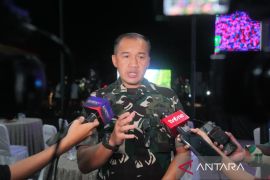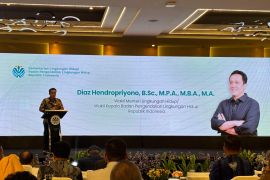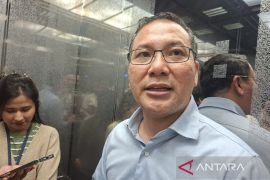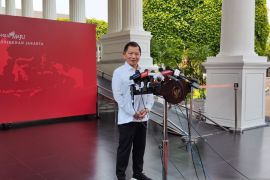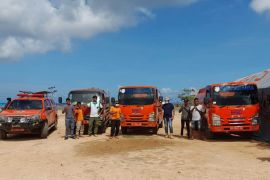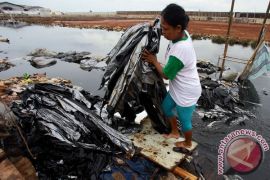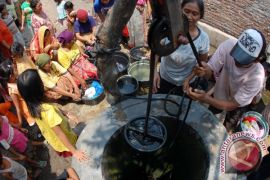"For us, in Indonesia, (water availability) is a challenge because we really need water, and the availability of clean water can overcome stunting," Vice President Amin noted here on Monday.
The vice president conveyed this statement after opening the 2nd Asia International Water Week (AIWW) event organized by the Asia Water Council in collaboration with the Ministry of Public Works and Public Housing (PUPR).
"Water and sanitation can reduce poverty. In general, poor areas have limited access to clean water and proper sanitation," he noted.
The vice president acknowledged the lack of available clean water for the global population.
"There is a lot of water in nature. However, sufficient clean water is not available, so we need to seek (a solution) regardless of the issue of climate change," he remarked.
Amin noted that the provision of clean water is also one of the government's programs to achieve superior quality of human resources.
"This is since the way to produce superior human resources is closely related to public health, and health is also related to water. Hence, water is a source of life and a source of economic development, especially agriculture," according to the vice president.
Hence, Amin noted that the government had built more than 60 dams and one thousand dams.
"It is still being built. We are optimistic of this forum generating big and strategic ideas to overcome the problem of water scarcity," the vice president stated.
On the same occasion, the vice president stated that Indonesia would be in the selection stage to host the 2024 World Water Forum.
"Hence, Indonesia will attempt to host the 2024 World Water Forum because we really want to be a country that can solve water issues in a sustainable way for all. This is not only for Indonesia but also for the world," Amin remarked.
The vice president affirmed that low access to basic infrastructure encompassing clean water, sanitation, and electricity will greatly affect the handling of the three priority issues of the Indonesian government, which include eradicating extreme poverty, developing superior human resources, and reducing stunting rates.
He emphasized that the scarcity of clean water in an area marks poverty and inequality. In fact, areas with extreme poverty generally have very limited access to clean water.
Out of the 35 districts that reported extreme poverty in Indonesia in 2021, all of these districts also reported low citizen access to safe drinking water. The figure is between 4.48 to 97.21 percent.
According to the vice president, access to clean water and proper sanitation also determines the quality of a person's health. Excellent health and quality education are the main requirements for realizing superior human resources that are currently also a priority for the Indonesian government.
Related news: Composting toilet is alternative solution for clean water crisis: BRIN
Moreover, efforts to reduce stunting are also closely related to the availability of adequate sanitation and clean water facilities, as they can reduce the occurrence of several diseases in pregnant women, infants, and toddlers.
The scarcity of sanitation and clean water facilities makes infants vulnerable to suffering from various diseases. In fact, the first one thousand days of life greatly determine the quality of the subsequent phases of life, including preventing stunting.
The provision of clean water is one of the interventions that can contribute 70 percent to stunting prevention.
Related news: Indonesia strives for sustainable management of clean water: VP
Translator: Katriana
Editor: Rahmad Nasution
Copyright © ANTARA 2022



